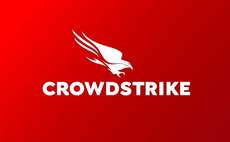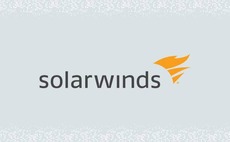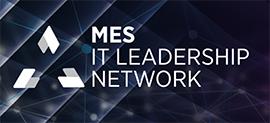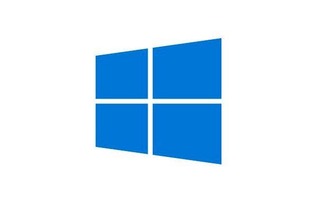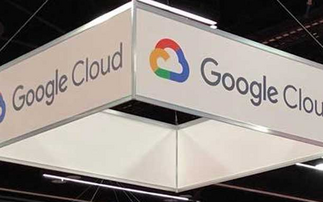
Jan Arendtsz, founder and CEO, Celigo
U.S. companies are predicted to spend over $243 million on Software-as-a-Service apps, according to Gartner.
Businesses are continuing to turn to the cloud, and that means they may have a lot of disparate SaaS apps, doing a lot of different functions. Managing and streamlining these apps to make them work efficiently and in business process harmony can be a challenge.
That's where integration platform as a service (iPaaS) comes in. IPaaS can tie together existing SaaS apps so that they work in unison to perform a specific business process.
Gartner called IPaaS a "high-performing market" and one experiencing "exponential" growth – the market grew by 72 percent in 2017 and is growing as more business end users bring their own SaaS apps into the organization to aid in their job functions.
Jan Arendtsz is the founder and CEO of Celigo, an IPaaS solution with a particular focus on sectors like retail, health care, financial services and more. He broke down the technology and its benefit to mid-market organizations in an interview with MES Computing.
What Does iPaaS Offer Midmarket Businesses?
Arendtsz said that iPaaS services like Celigo help companies "connect all these various business applications together so that there is a connected enterprise."
[See also: Netflix Is Built On Apache Cassandra. Here's Why It's Also A Platform for Midsize Companies]
Companies want to automate certain business processes, he said, such as streaming an order to a cash transaction, or procurement to payment.
Using SaaS apps for those processes can introduce a complexity that is "accentuated because a given business process is splintered across many different applications because you're buying a SaaS app for pretty much every possible function," he explained.
How Does Celigo Work?
"We are what we call a horizontal platform, which basically means that as long as there's an API, a means to access the data, then we can connect anything with anything and any type of business process can be automated," Arendtsz said.
Celigo's "sweet spot" client base is mid-market and larger. Companies of those sizes, "may have 30, 40, 50 sometimes 100 SaaS apps," according to Arendtsz.
"We come in and help connect some of those apps together. Not all of them but some of them for mission-critical business processes," he said.
Workflows are built though Celigo's user interface. Once built, the UI offers insight such as the health of a particular integration like the last time it ran successfully, Arendtsz explained.
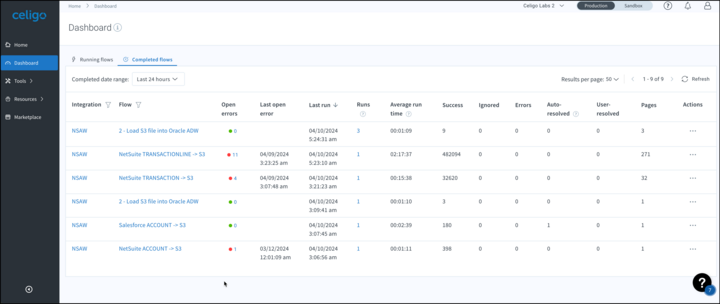
How Do You Know If Your Organization Would Benefit From An iPaaS Solution?
The most basic qualification, Arendtsz said, is has your company to some extent, invested in the cloud-SaaS model?
"Then we get into more of an assessment, do they have a mindset where they want to automate certain mission-critical business processes?" he said.
"The ideal customer for us though, is a customer who is more mature who thinks of automation not as an afterthought, but as something that they need to do to get ahead because it's ultimately an advantage," he added.
He said organizations that already have ERP and CRM solutions, are good candidates for iPaaS.
"We know that they will have a number of different needs to solve. Or if they have a marketing automation system, they likely need to connect that with a number of other systems. So, these are all kinds of signals for us to know that this is the type of customer that is a good fit for us."
What About The Security Of iPaaS?
Arendtsz also spoke about the security behind Celigo.
"By nature of what we do we are accessing other applications and we're connecting them, which means we have to do it in a really secure fashion because we need credentials to some of those other applications," he said.
[See also: 2 Top IAM Tools For Midmarket Organizations (That Aren't Okta)]
"And we have to store that in a very secure way and then we have to be cognizant of the data that is moved because the data might be sensitive. It's all transient. We don't store that data. We only store the data for a very short amount of time. We're like the mailman, as soon as it's been delivered from point A to point B, we remove all traces of delivery. From that perspective, right from day number one, it had to be extremely secure," he added.
Celigo works with existing security such as SASE (Secure Access Service Edge) and Single-Sign On, he also said.
iPaaS and AI
Arendtsz said that while there is currently hype around AI, Celigo has incorporated the technology since 2019.
"How do our customers benefit from the AI that we have in the product today? The nature of what we do is it's really about building these workflows as I described, before these pipes that go from one app to the other or connecting data sources. That's the first part. And then the second part is once you've built the workflow and it's running in production, it requires some management and maintenance. And we're using AI right now as an example on that second bucket in the management and maintenance to ensure that when there's a workflow running and there can be some errors, such as, all of a sudden there's a new SKU that shows up because the customer is trying to move an order that is not recognized. That's flagged as an error, so on and so forth. We handle all of that behind the scenes to reduce the burden on the user so that we can say, hey, we noticed a problem here. How would you like to solve that?" he said.
[See also: Stop! Before You Adopt AI Into Your Organization, Read These Expert's Tips]
He said the company is also working on an AI assistant that will build these workflows itself and customers can engage in natural language chat with it.
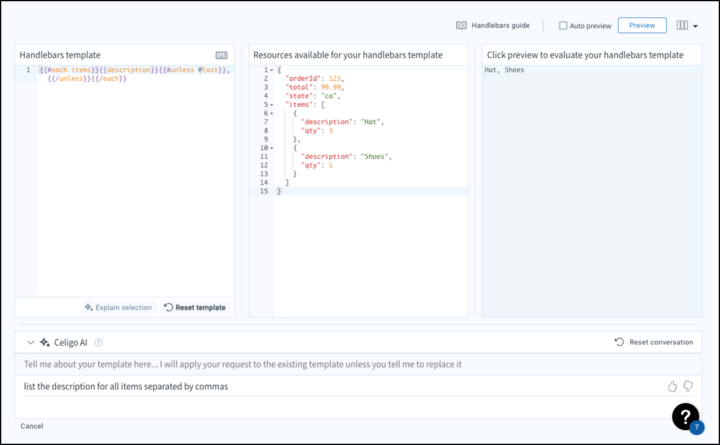
Next-Gen iPaaS
Arendtz considers Celigo to be the next generation of IPaaS solutions.
"The iPaaS space has been around for about 20 years," he said. "The first generation … was built to solve fairly different problems than today's. At that time, it was about connecting various on-prem apps together."
That however required knowledgeable IT workers to make all the parts fit together. With current iPaaS solutions like Celigo, the goal is to make the technology easy for any business user, not just IT.
The solution he said is ideal for "what we call a business technologist type person who knows the business process that they want to automate, but they're not technical," he said.
"We want them to come in and build these workflows. That's the way the UI has been designed. And you don't have to go get trained on the product to go build something. It's intuitive, like a modern SaaS application. We are one of few next generation [IPaaS] players that has gained a critical mass, which is what makes this really exciting."









